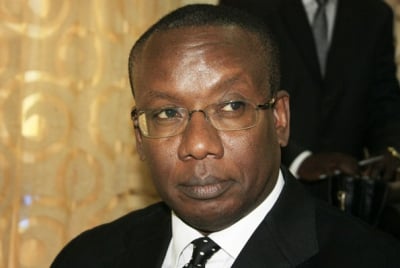Sixteen acting High Court judges could be kicked out

L-R: Mr Douglas Singiza Karekona, Ms Grace Harriet Magala and Ms Christine Kaahwa
What you need to know:
- The judges were appointed to the High Court in acting capacity for two years.
- Makerere University law lecturer Dr Kabumba Busingye, and a lawyer, Mr Andrew Karamagi, challenged the appointment last week
The appointment of 16 judges of the High Court in acting capacity hangs in the balance after a petition of the process.
Makerere University law lecturer Dr Kabumba Busingye, and a lawyer, Mr Andrew Karamagi, challenged the appointment last week.
Dr Kabumba and Mr Karamagi, in their petition to the Constitutional Court, aver that the appointments in acting capacity of the judges, violated several constitutional provisions, which refer to supremacy and the independence of the Judiciary.
“…the actions of the Judicial Service Commission and the President in advising and appointing acting judges of the High Court contravenes the spirit of the security of the tenure for the judicial officers and undermines the provisions in Articles 128, 144 and 147 of the Constitution,” reads in part the petition.
Adding: “The acts of the Judicial Service Commission and the President of subjecting the appointment of the judges of the High Court to an acting period of two years, is out of the boundaries of the powers granted by the Constitution hence, a violation of Articles 2, 138, 142 and 144 of the Constitution.”
In his affidavit to support the petition, Dr Kabumba says as a constitutional law lecturer, he was disturbed by the appointments of the new judges to serve for two years in acting capacity.
“This kind of conditional appointment infringes on the supremacy of the Constitution, undermines the security of tenure of judges and violates the independence of the Judiciary as the said officers are likely to execute their duties with either fear of retribution or expectation of favour or both,” he said.
In their petition, the duo avers that on May 25, the Judicial Service Commission issued a press statement, indicating that 16 people had been appointed judges of the High Court to serve in acting capacity four two years.

Justice Benjamin Kabiito, the chairperson of the Judicial Service Commission (JSC), that is in charge of hiring the judicial officers. PHOTO/FILE
Dr Kabumba further in his affidavit warned that this kind of conditional appointment of judges may have far reaching effects on the administration of justice and the independence of the Judiciary.
Through their lawyers of ALTO and Company Advocates, the petitioners now want court to declare that the actions of President Museveni and the JSC unconstitutional.
In the alternative, the petitioners want court to direct government to make the appointment of the 16 judges permanent as provided for under Article 144 of the Constitution.
Section 19 of the Judicial Service Commission Rules of 2005 indicate that the commission may advise the appointing authority on the nature of appointments to be made such as substantive, acting, contract, temporary, or probation in respect of judges, registrars, and other judicial officers.
According to the rules, a probationary appointment shall be for a period of two years and any extension of a probationary appointment shall not exceed one year.
Appointees
The included Ms Mary Ikit, Mr Douglas Singiza Karekona, Ms Susan Kanyange, Mr Samuel Emokor, Ms Flavia Matovu Nassuna, Ms Patricia Kahingi Asiimwe, Mr Bernard Namanya, and Mr Thomas Ocaya Ojele Rubanga.
Others are Ms Grace Harriet Magala, Mr Collins Acellam, Mr Allan Paul Nshimye Mbabazi, Ms Patricia Mutesi, Ms Christine Kaahwa, Mr George Okello, Ms Celia Nagawa, and Ms Faridah Shamilah Bukirwa.




